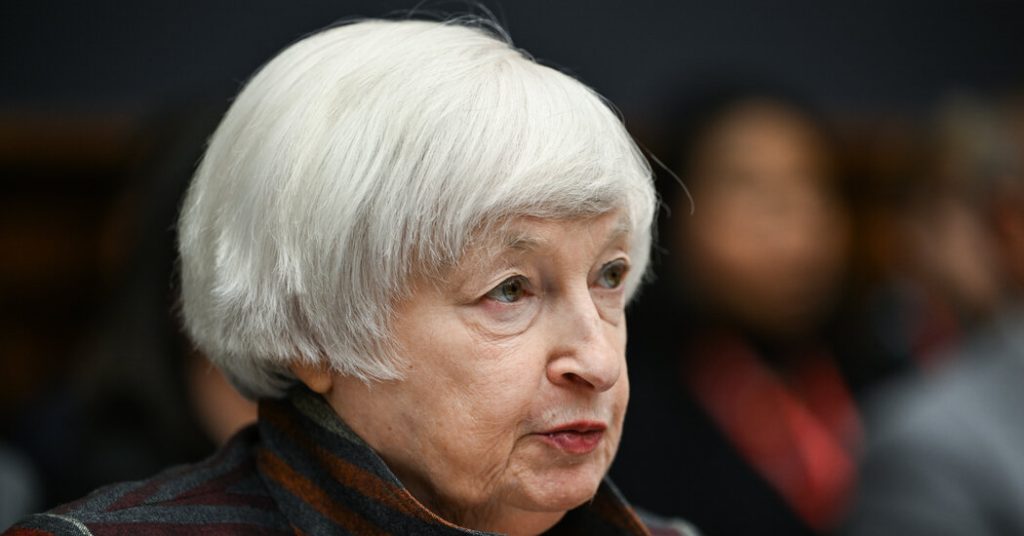Treasury Secretary Janet L. Yellen recently expressed the need for the United States and Europe to collaborate in addressing China’s excessive industrial capacity, which poses a significant threat to the global economy. Her remarks emphasized the importance of a united response against Chinese exports, including their production of green energy technology. The Biden administration is concerned that China’s rapid manufacturing of products like steel, electric cars, and solar panels may undermine efforts to support domestic manufacturing of clean energy technology and other advanced industries.
To address these concerns, the United States has implemented tariffs on certain Chinese imports, including a 100 percent tax on electric vehicles. These actions are part of a broader strategy to persuade China to comply with trade regulations and prevent Chinese products from dominating Western markets. However, Ms. Yellen clarified that the U.S. is not pursuing an anti-China policy but rather responding to the economic threat posed by China’s industrial ambitions. She urged for a coordinated approach to safeguard businesses in both countries and around the world.
Europe is also considering additional tariffs on Chinese imports, particularly electric vehicles. The European Commission is investigating whether Chinese state subsidies are distorting the auto market in Europe, impacting jobs and trade. This investigation could lead to preliminary duties on Chinese electric vehicle imports as early as July. However, Europe’s approach is cautious compared to the U.S., with likely lower tariff rates to address the issue. European leaders like Ursula von der Leyen are working to protect Europe’s industry while maintaining trade relations with China.
The tension between China and the U.S. and Europe is likely to escalate as each side implements measures to protect its interests. Some officials, including those from Germany, are cautious about taking aggressive actions that could harm their own economies or provoke retaliation from China. Chinese officials have criticized the U.S. and Europe for imposing tariffs and have warned of potential responses to these measures. The situation highlights the complexity of balancing economic interests with the need for fair trade practices in a global market.
The increasing competition between China, the U.S., and Europe in the electric vehicle market raises concerns about trade conflicts and potential disruptions to the world economy. Chinese companies are investing in factories in countries like Hungary and Mexico, with the intention of exporting products to Western markets. This move could lead to trade disputes and further tensions between the involved parties. As a result, policymakers in the U.S. and Europe are closely monitoring these developments and seeking ways to address the challenges presented by China’s industrial policies.
In conclusion, the efforts by the U.S. and Europe to work together in responding to China’s trade practices are aimed at protecting their economies and industries. However, the potential for retaliation and escalation in trade conflicts poses risks to the stability of the global economy. It is essential for all parties involved to engage in dialogue and find constructive solutions to address the concerns related to China’s industrial capacity and its impact on international trade.


